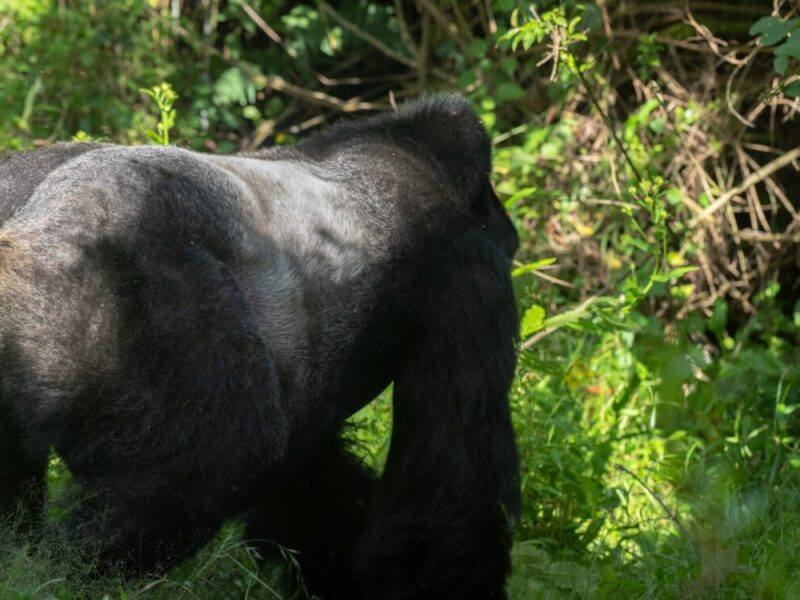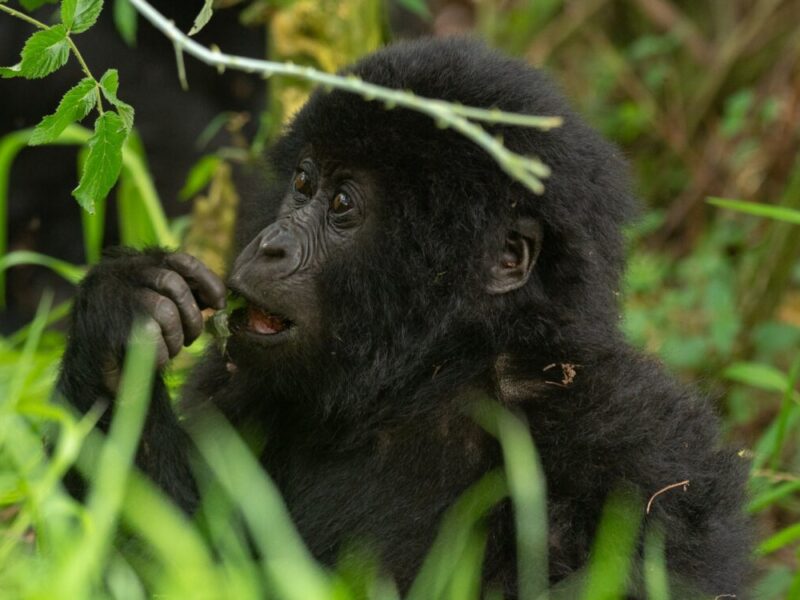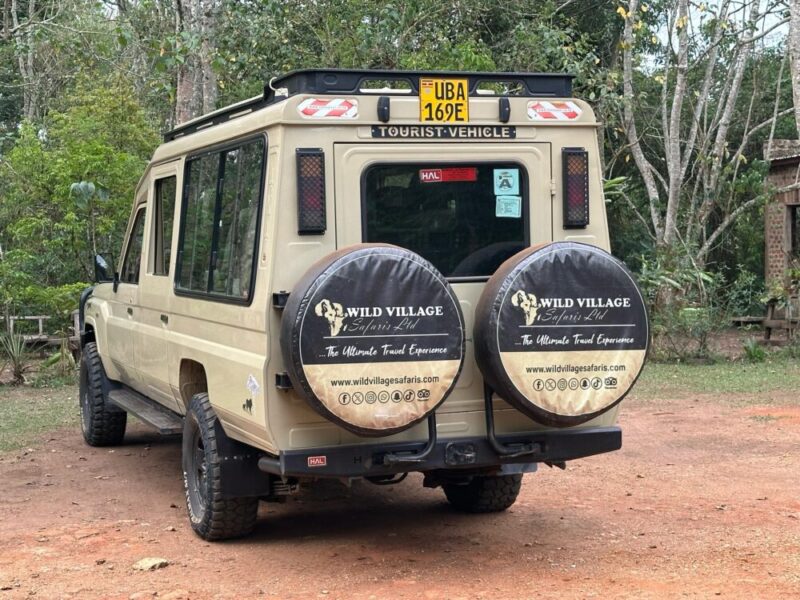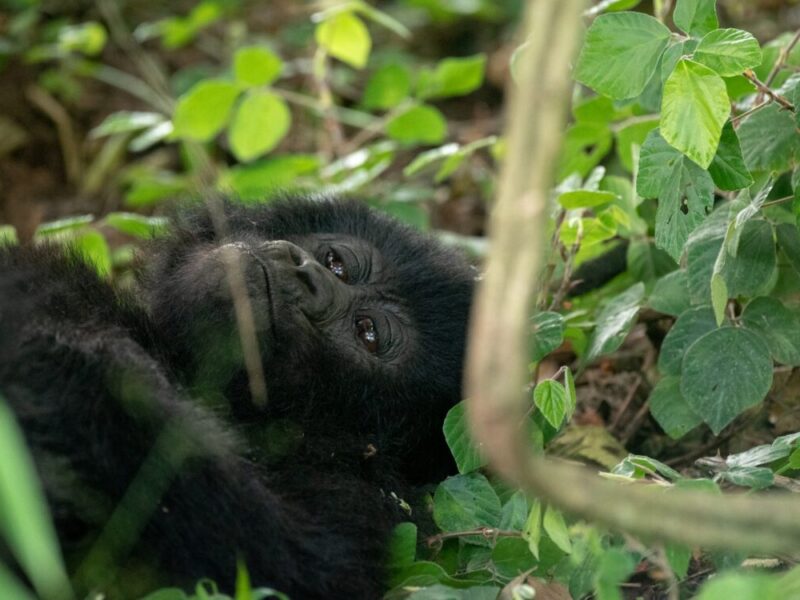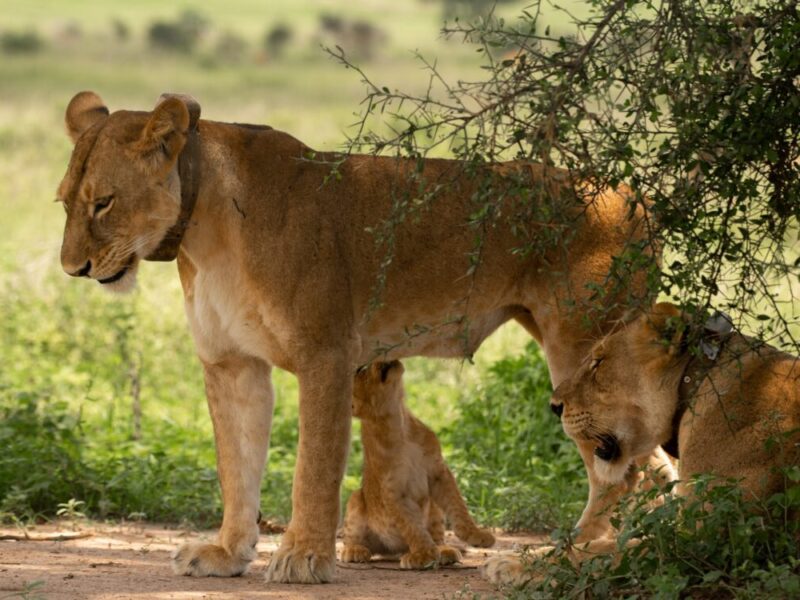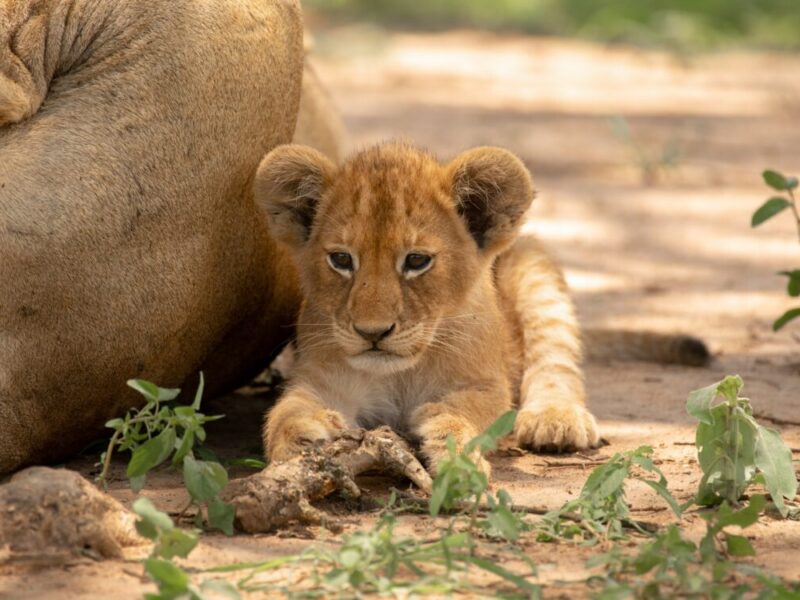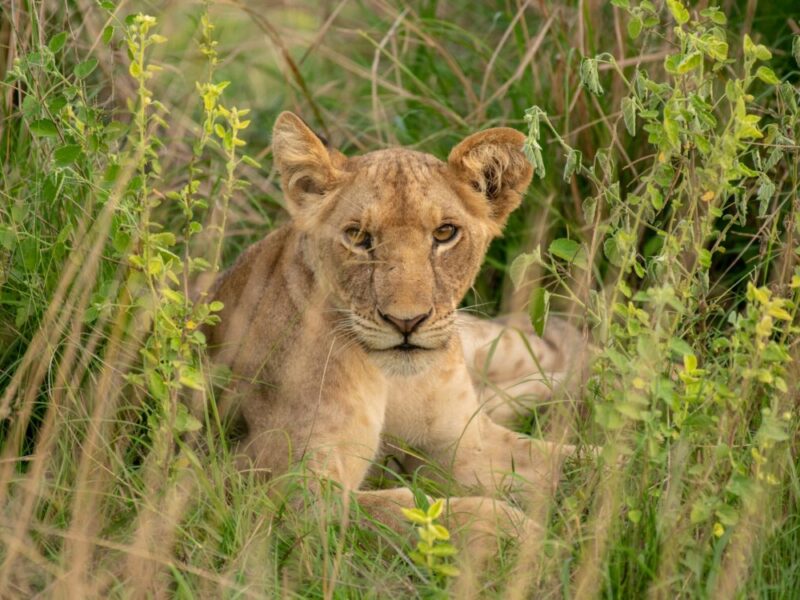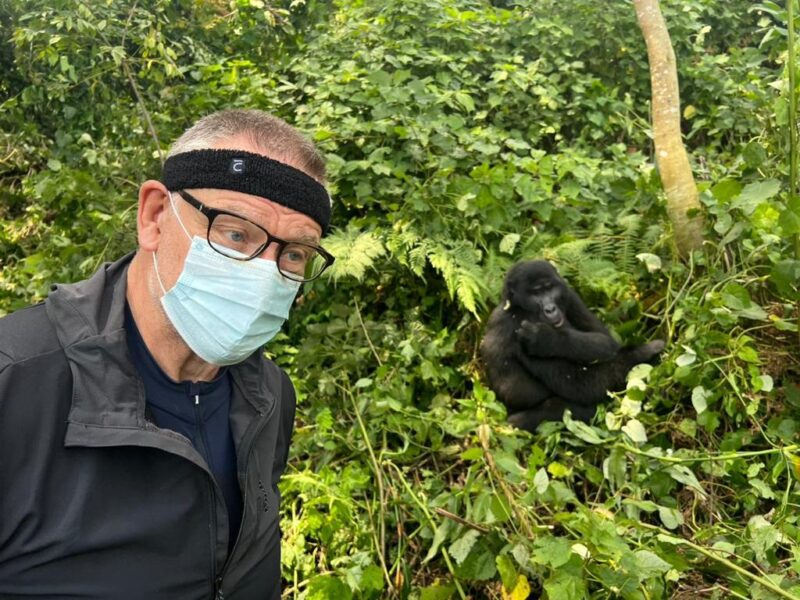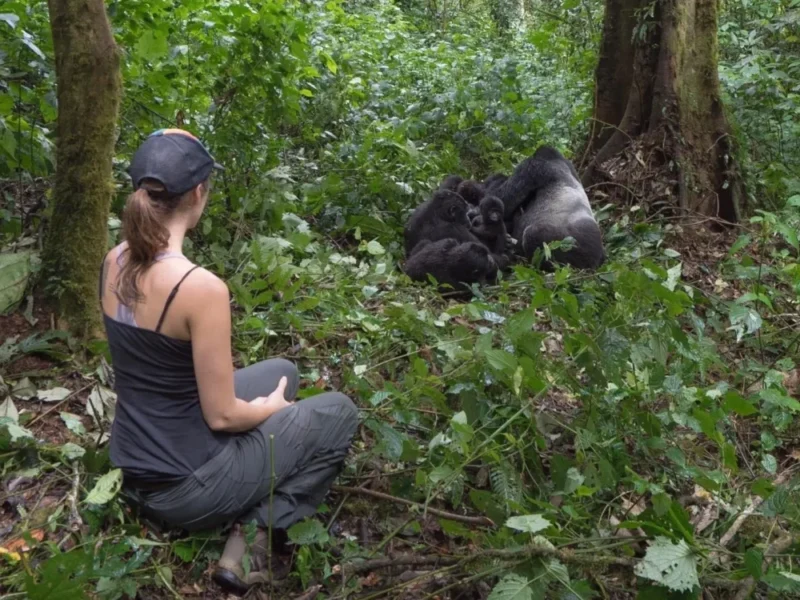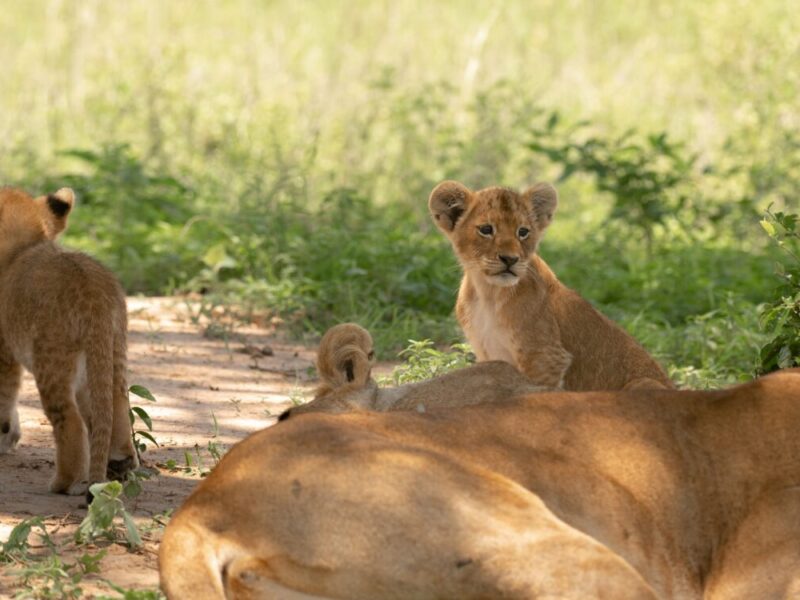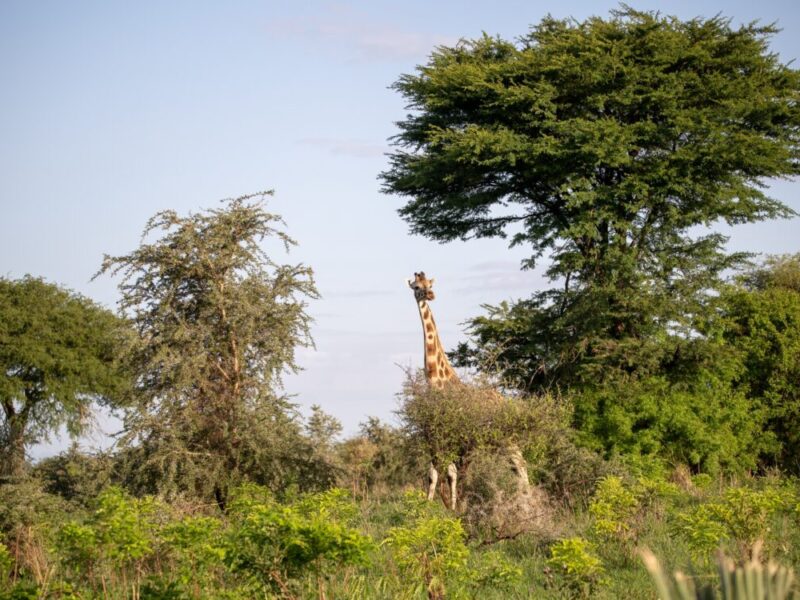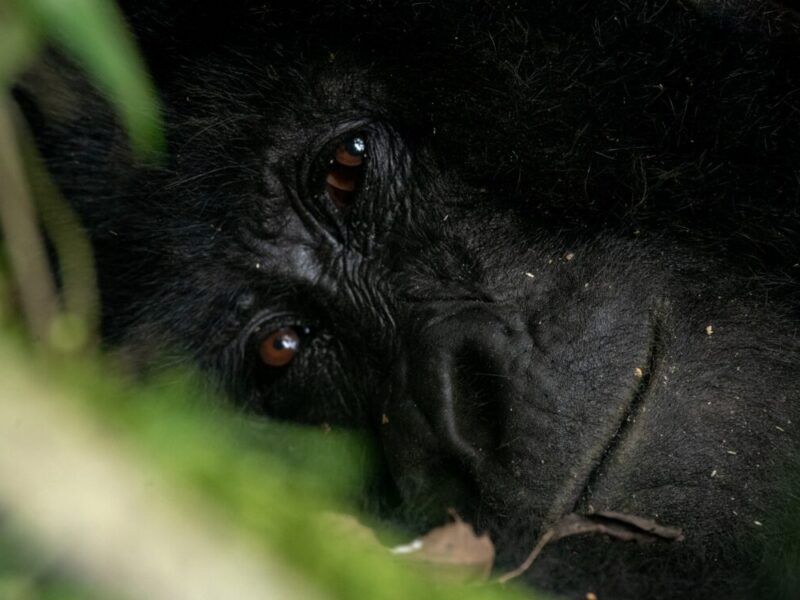The Best Locations for Village Visits with Wild Safaris
Embark on an unforgettable journey with Wild village safaris in Uganda, where cultural safaris and tours unveil the vibrant and diverse traditions of this East African gem. Discover the best East Africa Village Safaris, offering a unique blend of authentic experiences that make for unforgettable culture holidays in Africa. Wild Village safaris typically refer to guided tours or experiences that take visitors into rural or remote villages to provide them with a firsthand experience of local life, culture, and traditions.
Top 12 Best Unforgettable Journeys with Wild Village Safaris in Africa
More About East Africa Wild Village Safaris

Uganda Equator Crossing
Village safaris often involve interactions with local communities, allowing visitors to learn about their customs, traditions, and daily routines. This can include participating in traditional dances, trying local cuisine, and engaging in hands-on activities. Participants may have the opportunity to witness and even try their hand at local crafts and arts. This can include traditional weaving, pottery, basket making, and other artisanal skills that are often passed down through generations.
Wild Village safaris might include visits to farmlands and agricultural areas, where visitors can learn about traditional farming practices, crop cultivation, and animal husbandry. Village safaris often focus on community-based tourism, encouraging meaningful interactions between visitors and local residents. This can provide a deeper understanding of the challenges and joys of rural life.
Where to Go for Village Safaris?
Many villages are situated in picturesque locations surrounded by natural beauty. Village safaris may include walks or hikes through scenic landscapes, allowing visitors to appreciate the local flora and fauna. Village safaris are often designed to be educational, providing insights into the social, economic, and environmental aspects of rural living. This can lead to a greater appreciation for the diversity and richness of cultures beyond urban areas.
Some village safaris emphasize responsible tourism practices, ensuring that the experience benefits local communities economically and culturally without negatively impacting their way of life or the environment. When participating in village safaris, it’s essential for visitors to approach the experience with respect and sensitivity to the local culture. Responsible tourism practices, such as supporting local businesses and respecting the environment, help ensure that the impact on the community is positive and sustainable.
10 Top Reasons to Travel with Wild Village Safaris Ltd in 2025 & 2026
- Unmatched Local Expertise and Knowledge
- Customized and Flexible Itineraries
- Commitment to Sustainable and Ethical Tourism
- Exceptional Safety Standards
- Comprehensive Packages with Great Value
- Unique Cultural Experiences and Village Visits
- Passion for Conservation and Wildlife Education
- Personalized Customer Service
- Prime Access to Top Safari Destinations
- Authentic African Experiences for Every Traveler
Where to Go for Village Safaris in East Africa
East Africa offers a rich tapestry of cultures and landscapes, making it an excellent region for experiencing village safaris. Here are a few destinations in East Africa where you can explore traditional village life.
Visit Karatu Village, Tanzania Travel
Maasai Mara National Reserve, Kenya
Maasai Mara, situated in Kenya, is renowned for being the homeland of the Maasai people, one of the most prominent ethnic groups in East Africa. Numerous tour operators provide opportunities for visitors to engage in Maasai village visits, offering a deeper understanding of this vibrant community’s unique way of life.
These immersive experiences go beyond mere observation, encompassing cultural performances, traditional dances, and profound insights into the Maasai people’s pastoral lifestyle. Visitors can witness and participate in traditional ceremonies, gaining firsthand knowledge of the customs and rituals that have been preserved and passed down through generations.
The Maasai village safaris often involve interactions with community members, allowing visitors to engage in meaningful conversations and exchange cultural perspectives. Participants may have the chance to explore the intricacies of Maasai craftsmanship, from beadwork to traditional attire, and even try their hand at these artistic expressions.
The tours typically include discussions about the Maasai people’s deep connection to the land and their sustainable practices in harmony with nature. Additionally, visitors may learn about the challenges faced by the Maasai community and the efforts being made to preserve their cultural heritage in the face of modernization.
By partaking in Maasai village visits in the Maasai Mara region, travelers gain a richer appreciation for the Maasai way of life, fostering cultural understanding and promoting responsible tourism practices that contribute positively to the well-being of this distinctive East African community.
Serengeti and Ngorongoro Conservation Area, Tanzania
Serengeti and Ngorongoro Conservation Area, both located in Tanzania, are regions where the Maasai people have established their presence. In proximity to these renowned natural wonders, guided tours offer a fascinating insight into the nomadic lifestyle of the Maasai, along with opportunities to explore their distinctive traditions and customs.
Guided tours in these areas often involve visits to Maasai village safaris, where travelers can witness firsthand the traditional practices that have defined the Maasai way of life for centuries. These immersive experiences may include interactions with Maasai community members, providing a deeper understanding of their customs, social structures, and spiritual beliefs.
The nomadic lifestyle of the Maasai becomes apparent during these tours, as visitors learn about their migratory patterns, seasonal settlements, and sustainable practices adapted to the surrounding environment. Engaging with Maasai guides allows for a more authentic exploration of the landscape and its significance to their cultural heritage.
Additionally, these tours provide opportunities to appreciate the Maasai’s unique artistic expressions, such as beadwork, jewelry, and vibrant clothing. Travelers may have the chance to participate in cultural activities, traditional dances, and gain insights into the symbolism embedded in Maasai rituals.
By delving into the Maasai culture in the Serengeti and Ngorongoro Conservation Area, visitors not only witness the beauty of the natural landscape but also gain a profound appreciation for the resilience and richness of the Maasai people’s traditions in the face of modern challenges.
Usambara Mountains National Park, Tanzania
Nestled in Tanzania, the Usambara Mountains stand as a haven for diverse ethnic groups, and embarking on village safaris in this scenic region presents an unparalleled opportunity to delve into the tapestry of local cultures and agricultural traditions. These safaris provide a unique window into the daily lives of the communities inhabiting the Usambara Mountains.
Participants in village safaris are treated to an authentic experience, witnessing traditional farming techniques that have been passed down through generations. The agricultural practices of the local communities are often central to these tours, offering visitors insights into the sustainable methods employed in cultivating crops amid the mountainous terrain.
As the safaris unfold, the stunning landscapes of the Usambara Mountains serve as a breathtaking backdrop. The trails through picturesque villages allow visitors to appreciate not only the cultural richness but also the natural beauty that defines this region. Walks through terraced fields and lush vegetation offer a glimpse into the harmonious relationship between the local communities and their surroundings.
Interactions with villagers during the safaris provide an opportunity for cultural exchange, as visitors gain firsthand knowledge of customs, traditions, and the everyday challenges faced by the residents of the Usambara Mountains. Engaging with local artisans might involve exploring traditional crafts, adding an extra layer of depth to the experience.
By participating in village safaris in the Usambara Mountains, travelers embark on a journey that goes beyond the ordinary, fostering a deeper connection with the region’s cultural mosaic and creating lasting memories of the breathtaking landscapes and warm hospitality of the local communities.
Zanzibar, Tanzania
Zanzibar, celebrated for its pristine beaches, is not just a tropical paradise but also a destination rich in Swahili culture. Amidst the idyllic coastal landscapes, the island harbors traditional villages that offer a captivating glimpse into the vibrant tapestry of Swahili heritage. Guided tours in Zanzibar extend beyond the sandy shores to encompass visits to spice farms, rural communities, and immersive interactions with locals engaged in traditional crafts.
These tours often kick off with visits to spice farms, where participants can explore the cultivation of exotic spices such as cloves, vanilla, and cinnamon. Engaging with the agricultural practices unique to the region provides insights into the historical significance of Zanzibar as a renowned spice hub.
Venturing into rural communities, visitors have the opportunity to immerse themselves in Swahili culture. From traditional architecture to local customs, these excursions offer a holistic experience of the island’s rich cultural heritage. Interactions with villagers provide a chance to learn about their daily routines, beliefs, and the communal spirit that defines life in Zanzibar’s traditional settlements.
Participating in tours that highlight traditional crafts allows visitors to witness and even engage in the creation of intricate handmade items. From weaving to wood carving, these crafts reflect the artistry and skill passed down through generations, contributing to the preservation of Swahili artistic traditions.
Zanzibar, with its stunning beaches and cultural depth, becomes a destination not just for relaxation but also for a multifaceted exploration of Swahili heritage. These tours offer an enriching blend of natural beauty and cultural immersion, ensuring that visitors leave with a deeper understanding of the island’s history and the enduring legacy of its Swahili traditions.
Rwanda Village Safaris
Embarking on village safaris in Rwanda and Uganda, both nestled in the heart of East Africa, opens a gateway to the captivating landscapes, diverse wildlife, and dynamic cultures that define these nations. These immersive experiences offer a unique opportunity to delve into the traditional lifestyles and rich cultural heritage of the various ethnic groups that call these regions home.
In Rwanda, the Iby’Iwacu Cultural Village near Volcanoes National Park stands as a beacon of community-based tourism. Here, visitors can partake in an authentic exploration of traditional Rwandan culture, enjoying dances, songs, and demonstrations of traditional activities that provide a window into the nation’s heritage.
For those seeking a more intimate encounter, some village safaris in Rwanda extend to homestay experiences. Living with local families allows visitors to engage in daily activities, fostering a deeper understanding of rural life and creating lasting connections with the local community.
Rwandans are renowned for their banana beer, and village safaris often incorporate visits to local communities where the intricate process of making this traditional beverage is unveiled. Visitors may even have the chance to participate in the brewing process.
Exploration of local craft workshops introduces participants to the artistry of traditional Rwandan crafts, including basket weaving, pottery, and beadwork. Engaging with skilled artisans provides insight into the cultural significance and meticulous craftsmanship behind these creations.
Venturing into rural areas during village safaris offers a comprehensive understanding of Rwandan agricultural practices. From crop cultivation to livestock farming, participants witness traditional methods of farming and food processing, gaining a holistic perspective on the symbiotic relationship between the Rwandan people and their land.
Uganda Village Safaris
Uganda Village Safaris offer a unique and enriching experience, particularly when exploring the cultural richness of the Batwa people, also known as Pygmies, indigenous to the forested regions of Uganda. Village safaris may encompass visits to Batwa communities, providing an immersive opportunity to delve into their distinctive culture and way of life.
Immerse yourself in the vibrant cultural diversity of Ugandan communities through traditional music, dance, and storytelling performances. Each ethnic group in Uganda boasts its own set of traditions, contributing to the colorful tapestry of the country’s cultural heritage.
Explore craft markets nestled in rural villages, where handmade crafts and artifacts crafted by local artisans are available for purchase. This not only supports local economies but also provides visitors with an authentic and meaningful shopping experience.
Some village safaris go beyond cultural exploration and extend to local schools, allowing participants to interact with students, gain insights into the education system, and even engage in educational activities, fostering a deeper connection with the local community.
Witnessing traditional farming practices in rural Uganda is often a highlight of village safaris. Visitors may have the opportunity to observe demonstrations of planting, harvesting, and food processing, gaining valuable insights into the agricultural traditions that sustain local communities.
Uganda’s commitment to community-based conservation is also showcased during village safaris. The tours may spotlight local initiatives dedicated to preserving wildlife and natural habitats, offering participants a firsthand look at the efforts made to maintain ecological balance.
When planning village safaris in Uganda, it is advisable to collaborate with reputable tour operators that prioritize responsible tourism and maintain positive relationships with local communities. Approaching cultural interactions with respect and a genuine openness to learning ensures a meaningful and mutually beneficial experience for both visitors and the communities they encounter.
Best Time for Village Safaris in East Africa
The best time for village safaris in East Africa can vary depending on the specific region and the type of experience you’re seeking. East Africa generally has two main seasons: the dry season and the rainy season. Consider the following factors when planning your village safari:
Batwa Cultural Experience
Dry Season
The dry season is often the most favorable time for village safaris. It typically provides better road conditions, making it easier to access rural areas.
Wildlife viewing is generally better during the dry season, and many cultural festivals and events may take place during this time.
In East Africa, the dry season usually occurs from June to October. This is an excellent time for safaris in countries like Kenya and Tanzania.
Rainy Season
The rainy season, while bringing lush green landscapes, can make some rural areas inaccessible due to muddy and slippery roads.
However, the rainy season can be a unique time to witness agricultural activities, as this is when planting and cultivation often take place.
In East Africa, the rainy season usually occurs from November to April.
Cultural Festivals
Check for specific cultural events or festivals that coincide with your travel dates. These events can provide enhanced cultural experiences during your village safari.
Different ethnic groups may have their own celebrations, and participating in these can offer a deeper understanding of local traditions.
Wildlife Migration
If your village safari includes wildlife viewing, consider the timing of the Great Migration in the Serengeti (Tanzania) and Maasai Mara (Kenya). This migration usually occurs from July to October, making it an exciting time for both wildlife and cultural experiences.
Temperature Considerations
Consider your comfort level with temperatures. The dry season tends to have cooler temperatures, while the rainy season may bring warmer, more humid conditions.
It’s essential to research the specific destination for your village safari and consider the local climate and conditions. Additionally, consult with tour operators or local guides who can provide insights into the best times for cultural experiences and outdoor activities in the specific regions you plan to visit.


